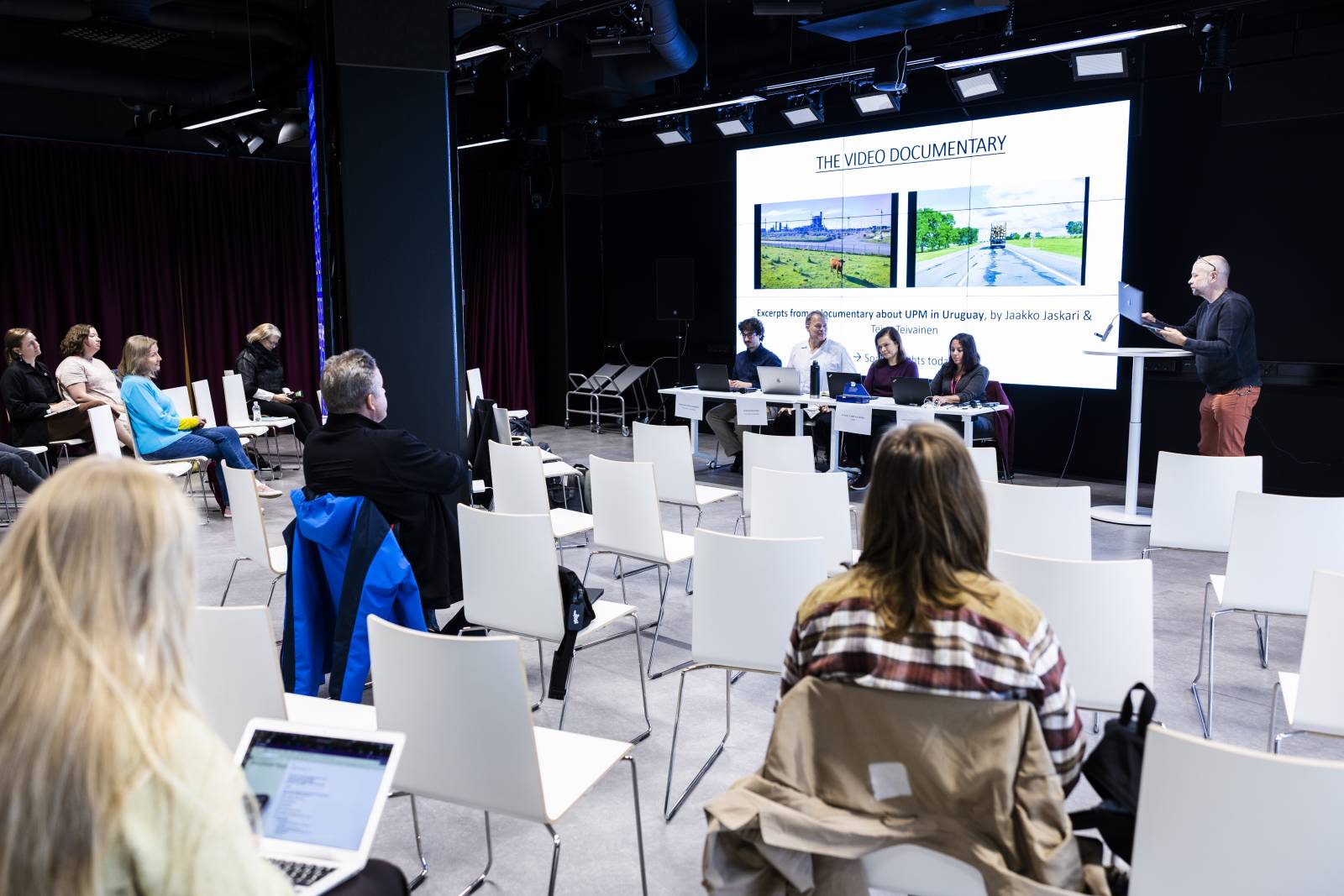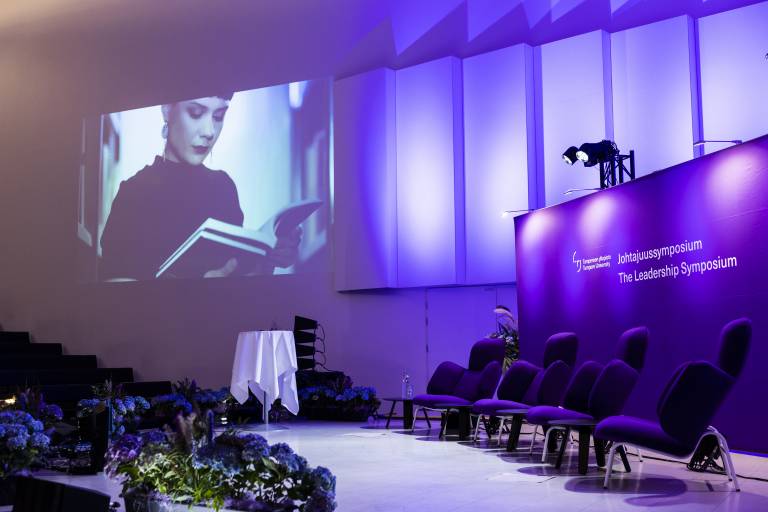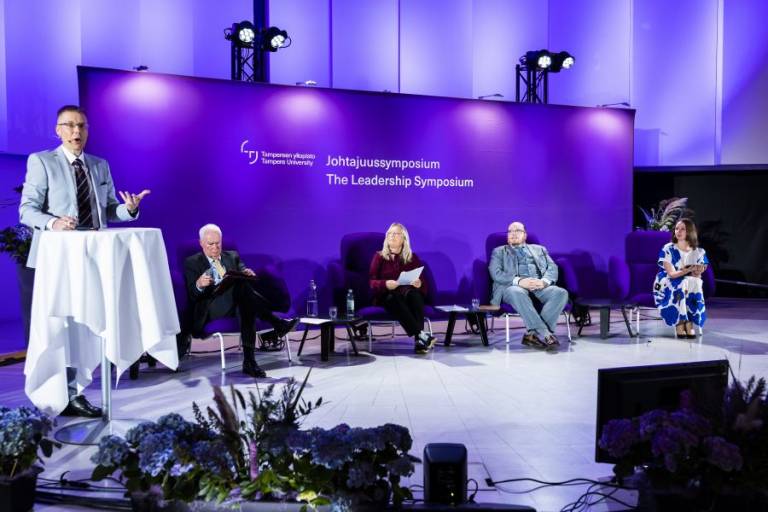Character
We will firstly look at what is the character of the change discussed in the panel. From UPM perspective, the change is clearly planned. Indeed, the company has precise processes to operate its project and believes the change will be successful if the steps are implemented. In this case, the change is rationally planned. For example, they measured and communicated the changes that will concretely happen in Uruguayan society: the creation of 10 000 permanent jobs (according to UPM); a rise in local SME activities, the creation of new infrastructures such as train rails. This change wanted by UPM can be criticized due to the fact that it does not take into consideration ethics as the project aims to exploit natural resources for profits, as stated by some Uruguayan intellectuals during the panel.
Magnitude
Secondly, we can say that in this framework, the magnitude of the change is a punctuated equilibrium. Indeed, the company’s presence will influence the life and habits of inhabitants especially near the town where the factory is built, since the activity might degrade the water quality, as argued by environmental activists, but also create jobs, as argued by UPM. However, these incremental changes may lead to a transformational change, and this is probably why the implementation of the firm is so debated. Some Uruguayan intellectuals even used the term “neo-colonialism” to talk about this change, being worried that a company with this much power could have (too) important influence on the Uruguayan society. Finally, the change is transformational for UPM itself, as the company’s representatives stated that this billion-dollar investment is the largest investment in UPM’s history.
Focus
The focus of the changes is strategic, especially from a company’s stand-point. It is indeed a company’s strategy to increase profits and grow in size, and UPM implements tactics such as exploiting resources in other countries to achieve its strategy. Operational changes are for example the creation of a factory in Uruguay and the creation of new infrastructures such as a deep-sea port or train rails.
Level/Scale
Finally, we can say that the change generated by this mega-project affects different levels of actors. Firstly, individuals will be impacted by the change. For example, a Uruguayan person, who would be employed by UPM to work on the constructions. According to UPM, the project will allow the creation of 10 000 permanent jobs. Secondly, broader social groups such as work teams or families are also impacted, an example the UPM teams allocated to this project or the ones who will work with UPM during the development of the activity. Just a few weeks ago, referring to a UPM’s press release, a worker died on a UPM construction site in Uruguay, and it is clear here that the change initiated by UPM impacts not only the individual, but also the individual’s social groups. A project of this size also impacts organizations, such as activist groups, companies, or political parties. Finally, we witnessed during the panel heated conversations between the ones favorable to the project and the ones against it. This project indeed poses environmental and ethical questions about the exploitation of Uruguayan resources by a foreign company for profits. During the panel, Victor L. Bachetta, a Uruguayan author, asked the UPM representatives: “We talk about colonialism, because UPM is intervening in activities that replace the functions of the Uruguayan state, such as public education. Why is this necessary for a foreign company?”. This statement clearly shows that this project affects Uruguayan society at large and raises societal questions on which debates are numerous, especially amongst intellectuals and academics.
This text was written by the LFC student Yasmine Bounouara as part of the course LFC.310 Introduction to Leadership for Change. For the full list of The Leadership Symposium speakers, see the programme here.





